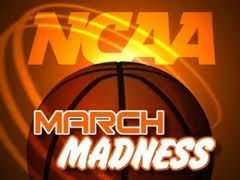Cross posted from The Stars Hollow Gazette
This is your morning Open Thread. Pour your favorite beverage and review the past and comment on the future.
Find the past “On This Day in History” here.
March 27 is the 86th day of the year (87th in leap years) in the Gregorian calendar. There are 279 days remaining until the end of the year.
 On this day in 1939, March Madness is born.
On this day in 1939, March Madness is born.
The University of Oregon defeats The Ohio State University 46-33 on this day in 1939 to win the first-ever NCAA men’s basketball tournament. The Final Four, as the tournament became known, has grown exponentially in size and popularity since 1939. By 2005, college basketball had become the most popular sporting event among gamblers, after the Super Bowl. The majority of that betting takes place at tournament time, when Las Vegas, the internet and office pools around the country see action from sports enthusiasts and once-a-year gamblers alike.
For the first 12 years of the men’s tournament, only eight teams were invited to participate. That number grew steadily until a 65-team tournament format was unveiled in 2001. After a “play-in” game between the 64th and 65th seeds, the tournament breaks into four regions of 16 teams. The winning teams from those regions comprise the Final Four, who meet in that year’s host city to decide the championship.
March Madness is a popular term for season-ending basketball tournaments played in March, especially those conducted by the National Collegiate Athletic Association (NCAA) and various state high school associations. Fans began connecting the term to the NCAA tournament in the early 1980s. Evidence suggests that CBS sportscaster Brent Musburger, who had worked for many years in Chicago before joining CBS, popularized the term during the annual tournament broadcasts. The phrase had not already become associated with the college tournament when an Illinois official wrote in 1939 that “A little March Madness [may] contribute to sanity.” March Madness is also a registered trademark, held jointly by the NCAA and the Illinois High School Association. It was also the title of a book about the Illinois high school tournament written in 1977 by Jim Enright.
H. V. Porter, an official with the Illinois High School Association (and later a member of the Basketball Hall of Fame) was the first person to use March Madness to describe a basketball tournament. Porter published an essay named March Madness in 1939 and in 1942 used the phrase in a poem, “Basketball Ides of March.” Through the years the use of March Madness picked up steam, especially in Illinois, Indiana, and other parts of the Midwest. During this period the term was used almost exclusively in reference to state high school tournaments. In 1977 the IHSA published a book about its tournament titled March Madness.
Only in the 1990s did either the IHSA or NCAA think about trademarking the term, and by that time a small television production company named Intersport, Inc., had beaten them both to the punch. IHSA eventually bought the trademark rights from Intersport and then went after big game, suing GTE Vantage, Inc., an NCAA licensee that used the name March Madness for a computer game based on the college tournament. In a historic ruling, “Illinois High School Association v. GTE Vantage, Inc.” (1996), the United States Court of Appeals for the Seventh Circuit created the concept of a “dual-use trademark,” granting both the IHSA and NCAA the right to trademark the term for their own purposes.
Following the ruling, the NCAA and IHSA joined forces and created the March Madness Athletic Association to coordinate the licensing of the trademark and investigate possible trademark infringement. One such case involved a company that had obtained the Internet domain name marchmadness.com and was using it to post information about the NCAA tournament. After protracted litigation, the United States Court of Appeals for the Fifth Circuit held in March Madness Athletic Association v. Netfire, Inc. (2003) that March Madness was not a generic term and ordered Netfire to relinquish the domain name. (This domain name is currently being used to redirect into the main NCAA.com web site.)
In recent years, the term “March Madness” has been expanded to include all conference tournaments in college basketball, with the term “The Big Dance” being used more frequently when specifically referring to the NCAA Tournament. March Madness has also has been used generally to describe all basketball tournaments across the country that occur in the month of March – high school and college, male and female.
The coverage and live blogging of all the 2014 Men’s and Women’s NCAA Championship are happening here at The Stars Hollow Gazette.

 On this day in 1939,
On this day in 1939, 
